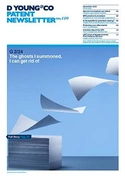EPO guidance: mixed-mode (hybrid) oral proceedings
In this article, we discuss an interesting development in which oral proceedings were held in a mixed-mode (hybrid) format where one party was heard “in-person” and the other party was heard by videoconference.
Background
Mandatory videoconferencing was introduced at the European Patent Office (EPO) during the Covid-19 pandemic. Since the start of 2023 videoconferencing has been the default format of oral proceedings before the Examining Divisions and Opposition Divisions, following a decision issued by the EPO: only if there are serious reasons against holding the oral proceedings by videoconference, and the division permits it, will proceedings in opposition be conducted in-person. This decision, however, does not apply to the Boards of Appeal. Under Article 15a Rules of Procedure of The Boards of Appeal (RPBA), the Boards of Appeal have the discretion to hold proceedings by videoconferencing if they consider it appropriate, either upon request by a party or its own motion.
Notably, in the much discussed case G 1/21, the Enlarged Board of Appeal determined that the limitations of video technology make videoconferencing a suboptimal format for oral proceedings. In this case it was held that in-person oral proceedings are the “gold-standard” and should be the default option in the absence of a disruption (such as the Covid-19 pandemic).
Thus, during the written procedure leading to oral proceedings, it is important for parties to the proceedings to provide detailed reasons for or against an in-person hearing. Merely expressing a preference for a particular format is not sufficient. For practical suggestions on factors that could be considered when preparing arguments for or against an in-person hearing please see our article “EPO guidance: requesting “in-person” or ViCo oral proceedings”.
The use of videoconferencing, in particular at the Boards of Appeal, is not yet settled and, as discussed below, the case law continues to evolve around its use.
Case law developments
T 1501/20 is a decision by the Board of Appeal. In this case, the parties were summoned to oral proceedings on 14 July 2023.
For the appellant-opponent this day was a national holiday and they requested that the oral proceedings be postponed or held as a videoconference. However, the respondent-proprietor objected to videoconferencing for the reason that it would be much easier to coordinate between the respondent’s legal representative and the respondent’s participating employees in the context of an in-person hearing. Subsequent to these requests, it was agreed between the parties to conduct oral proceedings in a mixed-mode. Thus, during the hearing, the respondent-proprietor’s representatives and employees were at the premises of the EPO and the appellant-opponent participated by videoconference.
In its decision, the Board of Appeal confirmed that a national holiday is not sufficient grounds for postponing oral proceedings unless a holiday or trip has already been booked. Further, it held that a postponement could not occur for procedural considerations.
The Board of Appeal considered G 1/21 and confirmed that Article 15(a) does not provide legal basis for conducting oral proceedings by videoconferencing against the will of one of the parties to the proceedings, unless there is a general emergency restricting the abilities of the parties to attend in-person at the EPO’s premises.
The Board of Appeal in T 1501/20 allowed oral proceedings to be held in a hybrid hearing (mixed-mode) because both parties had consented to that format.
T 1946/21 is another decision which discusses the issue of a mixed-mode hearing. In this case, a request was made by one party for the representative to attend in-person but for the other attendees in the party to be heard by videoconference. No request had been filed by this representative detailing who these other attendees were and why they were relevant to the case. The Board of Appeal held that, in the absence of any such request, there were no reasons which would outweigh the increased technical and organisation complexity caused by setting up and operating an additional parallel hybrid channel while running in-person proceedings at which all parties are represented and in which all attendees may participate.
Practice points
Balancing the requests by various parties to an oral proceedings for in-person or videoconferencing is not always straightforward for the EPO. There is discretion for an Examining Division or an Opposition Division to allow in-person proceedings, and discretion for a Board of Appeal to allow videoconferencing.
- The Board of Appeal, at least, seems willing to allow mixed-mode hearings under some circumstances.
- It seems that the EPO will require all parties to the proceedings to agree (or at least not object) to the mixed-mode.
- If you would prefer to use videoconferencing at the Board of Appeal and another party would prefer in-person proceedings then consideration should be given to approaching the other party to see if they would be willing to allow mixed-mode.
- If mixed-mode is required only for “other attendees” to a proceedings then details of who these other attendees are as well as an explanation of their relevance to the case and reasoning for the mixed-mode request should be provided to the EPO.
- If a mixed-mode hearing does not suit your requirements then consideration should be given to writing to the EPO accordingly.
We are well equipped to carry out oral proceedings by videoconference and have extensive experience in doing so.
If you have any questions about oral proceedings by videoconference, please review our “Guide to ViCo at the EPO” or speak to your D Young & Co representative.
Useful links
- EPO guidance: requesting in-person or ViCo oral proceedings, 01 August 2023: dycip.com/epo-vico-inperson
- T 1946/21: the deadline for transferring right to priority: dycip.com/t194621-priority-deadline
- Guide to ViCo at the EPO: dycip.com/vicoguide

